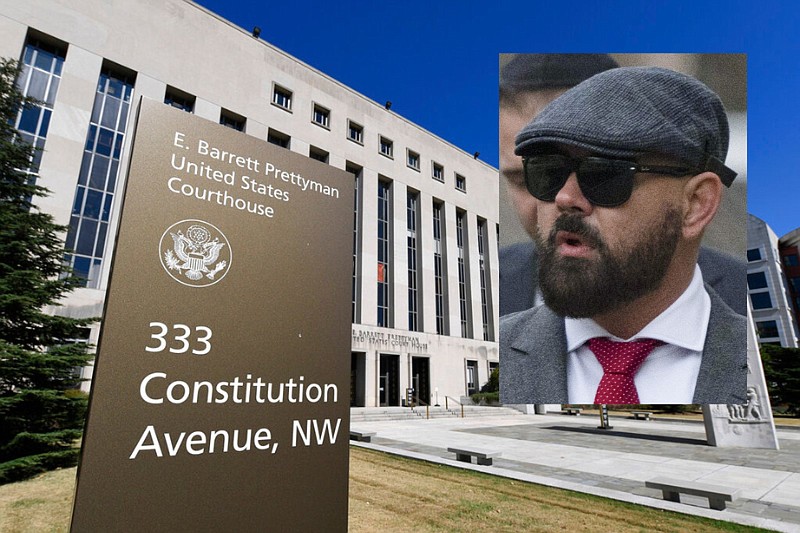A federal judge in the District of Columbia admonished the former lead attorney for Richard "Bigo" Barnett of Gravette in an order on Thursday.
Joseph McBride of New York City wasn't initially forthcoming about his reason for withdrawing as the lead attorney for another Jan. 6 defendant -- Christopher Quaglin -- a month before his trial was to begin, U.S. District Judge Trevor McFadden wrote in Thursday's order.
McBride "did not initially fulfill his professional duty of candor to this tribunal," wrote McFadden.
In a March 6 motion, McBride told the judge he needed to withdraw from Quaglin's case to focus on another Jan. 6 defendant he represents.
Turns out, Quaglin had fired McBride, according to McFadden.
McBride didn't mention that in his motion, but he did tell the judge in a hearing on Tuesday.
"Mr. McBride's suggestion at the hearing that he omitted this information to protect his client's interests is doubtful," McFadden wrote in the order. "More likely, he was protecting himself from the embarrassment of disclosing that he had been fired. While the reason for Mr. McBride's termination was irrelevant, the fact of his removal was pertinent to the withdrawal motion."
McFadden cited two other reasons to admonish McBride.
McBride wrote in his withdrawal motion that Jonathan Gross of Baltimore would be "lead counsel going forward" in Quaglin's case. But in Tuesday's hearing, McBride admitted that Gross would only be lead counsel "for a time" until he could find substitute lead counsel and get her up to speed, according to the judge's order.
"This is very different from the implication in his withdrawal motion," wrote McFadden.
Also, McBride didn't explain that Gross would be unavailable for the first few days of trial because of religious obligations, according to Thursday's order.
"Both of these facts had significant scheduling implications," wrote McFadden. "It would take time for Mr. Gross to retain and inform new lead counsel about this complicated multicount, multi-defendant felony case, and Mr. Gross himself could not attend the trial as scheduled. Mr. McBride's omissions were especially notable given the many other attorneys and witnesses involved in the case. Even though Mr. Quaglin had no objection to a continuance, the Court had other parties' interests to consider, too, and Mr. McBride's omissions undermined the Court's ability to properly balance those competing interests. ...
"These omissions forced the Court to continue this multi-defendant trial -- for a second time," wrote McFadden. "If the Court had known all the facts, it likely would not have allowed Mr. McBride to withdraw."
McFadden admonished McBride "to scrupulously adhere to his duty of candor to this Court and others going forward," according to the order.
However, McFadden won't refer McBride to the court's Committee on Grievances as he indicated he might do in a March 23 show cause order.
"The Court finds that further disciplinary action is unwarranted under Rule 3.3 or the other bases mentioned in the show cause order," wrote McFadden.
The judge wrote that the show cause order was discharged as to McBride, but it didn't indicate whether another order would be issued regarding Gross.
McBride led the the four-person legal team that handled Barnett's case.
After a two-week trial in January, Barnett was found guilty of all eight charges in connection with the U.S. Capitol riot of Jan. 6, 2021. He is scheduled to be sentenced May 24. Barnett faces a maximum of 47 years in prison.
Barnett faced enhanced charges for carrying a stun gun into the Capitol, where he posed for photos with his foot on a desk in House Speaker Nancy Pelosi's office suite.
Gross and Bradford L. Geyer of Cinnaminson, N.J., remain on Barnett's legal team to shepherd him through the sentencing phase.
Besides McBride, Carolyn Stewart of Plant City, Fla., was also allowed to withdraw as one of Barnett's attorneys of record.
Quaglin is a Jan. 6 defendant from New Jersey accused of attacking police officers with a stolen riot shield and spraying them with a chemical irritant.

